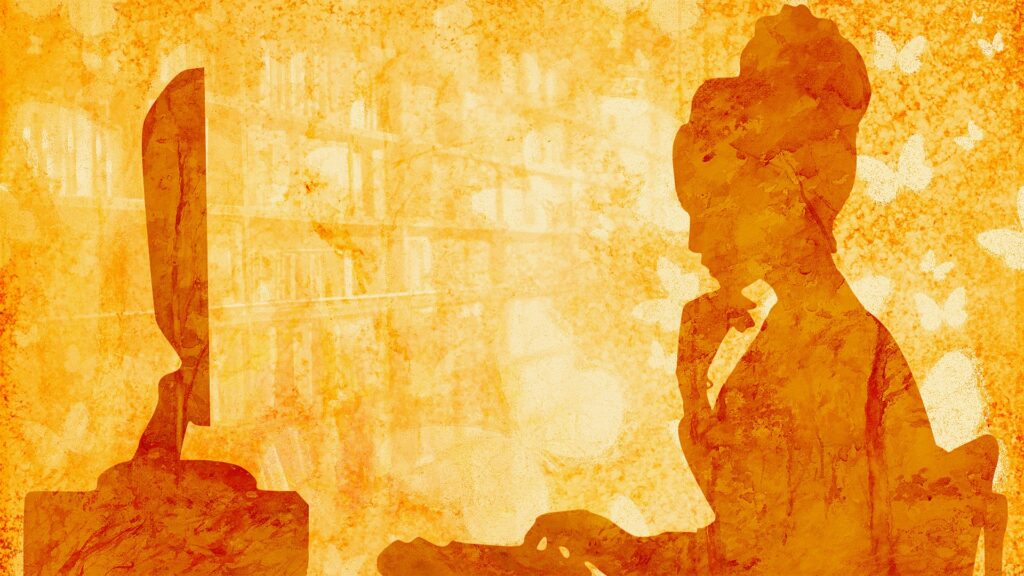Not Knowing What Other Teachers Do: A Critical Danger in Post-Secondary Education.

Written by Leah Dopp. MA Candidate. English. Hemispheric & Transnational Studies. School of Arts and Humanities. Claremont Graduate University
We have all had bad professors, it is almost a cultural trope. We all know those professors who we think are smart, who we know are brilliant writers and researchers, but who just do not seem capable of translating their smarts to others, or worse, blatantly practice unethical pedagogy. And if you are nodding along, know that you get bonus points if you had a professor who made excuses for themself citing “tenure.” More importantly, how do we avoid the pitfall of becoming those professors?
Someone outside of academia recently asked me when I would do student teaching. The answer, unless I decided to earn elementary or high school teaching credentials, is never. The reality is that teaching at the post-secondary level is not taught to post-secondary educators. This is dangerous because most of these educators are not fully aware of what other teachers do, beyond the strategies of their own teachers they had while they were in school. In response to these lamentations, Dr. Shamini Dias, director of CGU’s PFF program expressed that “PFF was started nationwide partly on the realization of this – that most people who earn a Ph.D. only have had models of teaching in the happenstance of teachers they might have had, and hence develop unconscious identities of teaching and learning that come from those experiences. And yet, like doctors, educators need to have an intentional sense of what they are doing.”
Dias’ words got me thinking. My brother is a medical doctor. His medical school did not expect him to base the praxis side of his profession solely on his experiences as a patient. During medical school, he spent numerous hours in the hospital in an observational-learning role. In many occupations, knowledge of the work is developed through observation. Yet, in one of the most important professions, teaching, it is seldom done, especially in post-secondary educational settings.
Unfortunately, being observed as a teacher is usually tied to evaluation by superiors therefore functions as an assessment rather than a true opportunity to grow. One small way we can work towards ending this cycle is for current educators to observe their peers in action.
I recently took CGU’s Transdisciplinary Pedagogy for Ethical Education class, and in it, we gave Teaching Demonstrations and observed those given by our peers. I come from an English background and built my demonstration around what themes in literature are and how to identify them in a text. Beforehand, I was nervous. I felt confident about the lesson plan I designed, but felt uncertain about things like timing and using the right text for my pretend students to practice analyzing. But as it turns out, participating in the Teaching Demonstration was a liberating experience that I learned a lot from.
I will be honest: my timing was off, and for that reason, we did not even get to my intended student application activity. (One big takeaway was that everything will take a lot longer than I think it will. When my time was up, I still had two activities planned!). But, it did not matter. It was a learning experience, and there was nothing to be nervous about.
Furthermore, I received excellent feedback from my peers. The point was brought up that all the examples of texts I provided were Eurocentric, which was true and in direct conflict with the pedagogy I hope to develop. This encouraged me to consider what I can do to combat this problem more effectively. In both a true classroom setting and for future teaching demonstrations, I can plan to acquire a diverse resource list of examples.
This experience revealed to me the usefulness of taking the time to observe peers teaching because nothing can ever be done well in a vacuum, and unfortunately, teaching in higher ed is still an isolated practice. This is why writers read, chefs travel, and singers listen to music. It is an essential aspect of ethical education, so as to avoid the peril of becoming complacent in one’s routine as an educator. Observing others’ approaches to teaching was an inspiring opportunity because I was able to see diverse modalities employed. Moreover, everyone had their own unique style and manner, but it was uplifting to see the ways in which different tacks worked. Some of my peers had high energy, others were exciting, others calming, or even nurturing.
One case study entitled Effectiveness of Peer Observation on Enhancing Teaching Competence Among Teacher Trainees During Teaching Practice, published in July 2018 is very much in agreement with my experience. The study found that “peer observation equips the teacher trainee with teaching confidence,” and moreover, “most of the teacher trainees pointed out that, peer observation without assessment criteria has more positive impacts.”
If peer observation became a common practice, I feel that higher education teaching culture would improve with a bent towards growing, evolving, and adaptability which are each aspects of inclusive, healthy pedagogies.
If you have friends or trusted colleagues who teach, I encourage you to ask their permission to drop in on their class and invite them to do the same. Seize the opportunity, as any creative being would to watch how others go about their work and to learn from that to get insights into your own craft.
Share